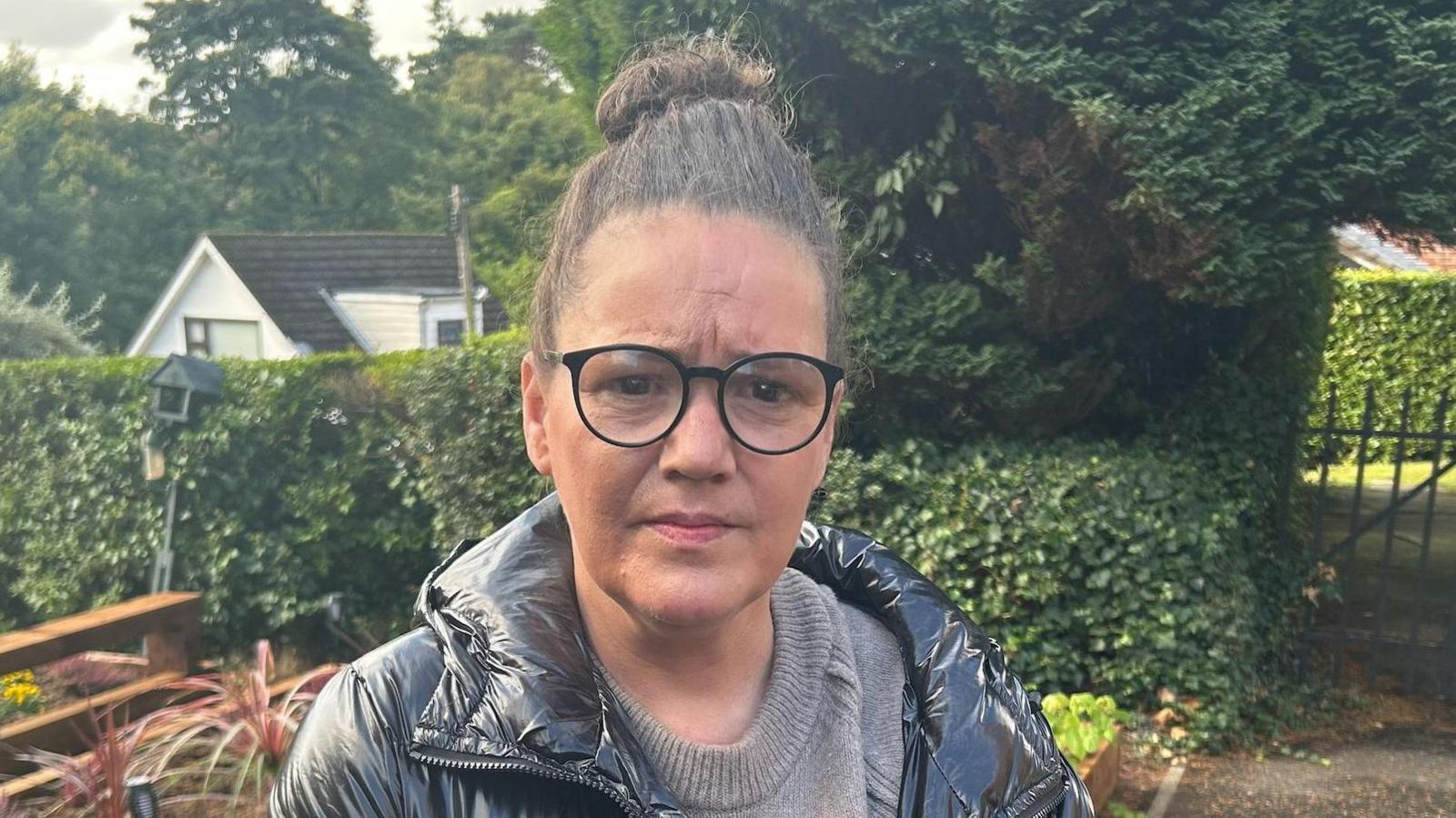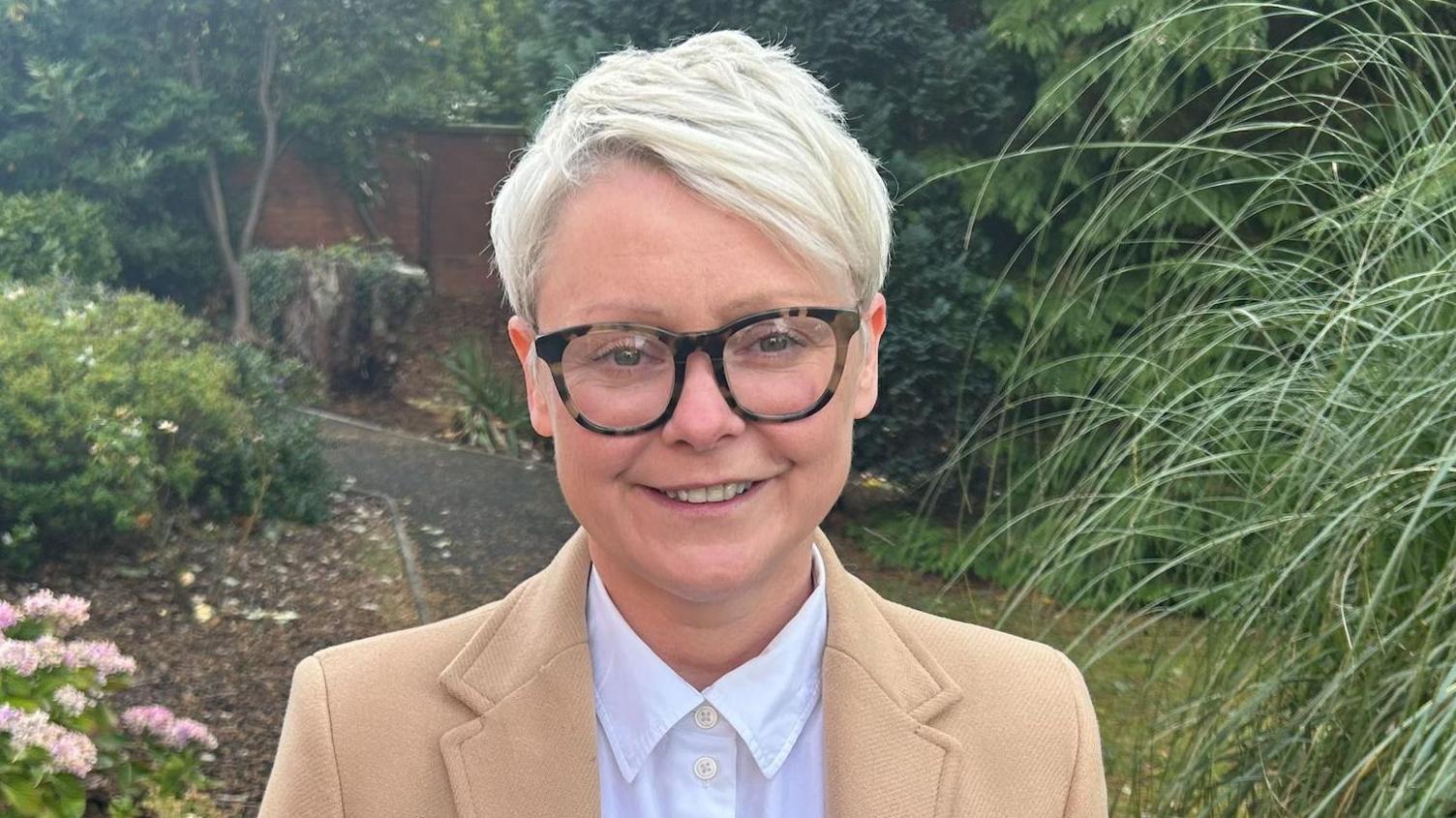'Women-only homeless facility helps me feel safe after abuse'

Charmaine says the facility has helped her rebuild her life
- Published
A woman living in a new women-only accommodation service has said it has enabled her to "feel safe" and helped her to "rebuild" her life.
Charmaine turned to alcohol to cope with trauma after experiencing domestic violence and became homeless.
She is one of 22 women living in the facility run by The Simon Community which had been a mixed gender hostel.
The homeless charity said there was an "urgent and growing need" for women-only spaces.
'I feel so much more comfortable'
The accommodation offers private rooms, shared kitchens and living areas, plus support tailored specifically for women experiencing homelessness.
Charmaine said when she arrived at the facility and saw 22 beds, but only two or three women there, she felt it was "very overwhelming and quite intimidating".
"For the first couple of weeks I stayed in my room. I found it hard to blend in. I had never been in this environment before. I was frightened," she said.
Charmaine told BBC News NI it was important to have women-only spaces.
"Because of my background. I feel so much more comfortable here. A mixed gender setting is not for everyone," she said.
"It's my first proper little home that I have lived in independently. I've never had my own kitchen, I've never had my own sofa, I have never had my own front door key, that is very important to me.
"It's my sanctuary. I still get overwhelmed sometimes when I walk into my home and think 'this is my place', no one coming through this door unless I let them through. I feel safe."

Karen says the Simon Community want the facility to help women to feel safe
The Simon Community said that thousands of women across Northern Ireland are experiencing homelessness.
Karen McAlister from the Simon Community said: "We know that when women become homeless they want a choice in relation to feeling safe.
"What women have told us is that their childhood is often filled with abuse and violence has continued through their adult life and some of that violence has been perpetrated by men and to have a space where it is 'women-only' is something that makes them feel safe and secure."
The charity said that between October 2024 and March 2025, 609 households presented as homeless to the Housing Executive because of domestic violence.
Eighty-three percent of those were women.
Ms McAlister added that the charity's objective was to help women "move out of homelessness".
Details of help and support are available on the BBC Action Line website.